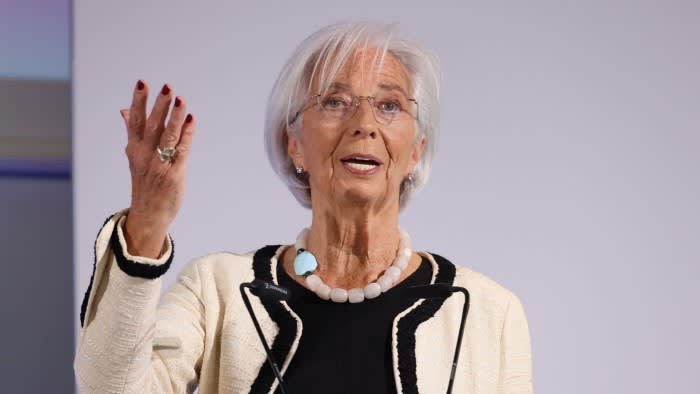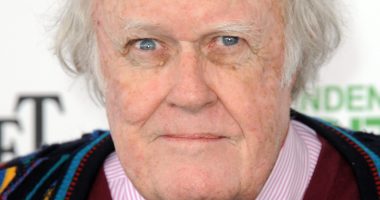Unlock the Editor’s Digest for free
Roula Khalaf, Editor of the FT, selects her favourite stories in this weekly newsletter.
The European Central Bank’s newest board member has warned against an “excessive focus” on waiting for slower wage growth before it starts cutting interest rates.
Piero Cipollone said in his first monetary policy speech since joining the ECB’s board from the Italian central bank in November that eurozone wage growth seemed to have peaked and if it kept slowing in line with its forecasts “we should be ready to swiftly dial back our restrictive monetary policy stance”.
His comments on Tuesday indicate he may be prepared to argue for cutting rates at the central bank’s next meeting in April, if data on inflation and wages indicate that price pressures continue to fade in line with the ECB’s expectations.
He warned that if wages slowed too quickly it would leave workers with permanently lower purchasing power and “mechanically put downward pressure on productivity growth or on employment”, which could endanger the return of inflation to the ECB’s 2 per cent target.
“An excessive focus on short-term wage developments may not take into full consideration the recovery in wages that can — and needs to — take place for the euro area’s currently fragile recovery to gain a stronger footing,” he said.
Cipollone’s speech in Brussels establishes him as one of the most dovish members of the ECB board. His position contrasts with statements by several colleagues that they do not expect to be able to cut rates until they see data showing that wages continued to slow in the first quarter, which will only be available shortly before their June meeting.
The Italian economist said wage growth needed to moderate from a level of more than 5 per cent last year, but warned of the risk that workers’ pay fails to catch up with inflation, leaving household purchasing power permanently lower and hampering economic growth.
“Waiting for further data before starting the normalisation of our policy rates, gives us additional insurance against upside risks to inflation,” he said. “But we should remain proportionate going forward given an economy that has stagnated for 18 months, risks to the economic outlook that are skewed to the downside, and credit conditions that are in restrictive territory.”
He pointed out that as eurozone inflation declines — it dropped to a more than two-year low of 2.6 per cent in February from a peak higher than 10 per cent in 2022 — the ECB’s monetary policy stance “becomes tighter relative to the inflation outlook” and this “strengthens the case for adjusting our policy rates”.
“If we hold them for too long, we might put the recovery at risk and delay the associated cyclical rebound in productivity growth,” he said. “This would be economically costly and induce risks for the sustained convergence of inflation to our target.”
He said the pace of rate cuts should be “calibrated” by the speed with which inflation was falling towards its target and it could opt for a “faster pace” if this happened quicker than forecast.
Spanish data published on Wednesday showed inflation in the eurozone’s fourth-largest economy increased slightly less than widely forecast to 3.2 per cent in March from 2.9 per cent in February, adding to hopes that overall inflation in the bloc will continue falling when those figures are released next week.
Core inflation, which strips out energy and fresh food prices to give a better picture of underlying price pressures, slowed in Spain from 3.5 per cent in February to 3.3 per cent in March.
Read More: World News | Entertainment News | Celeb News
FT









